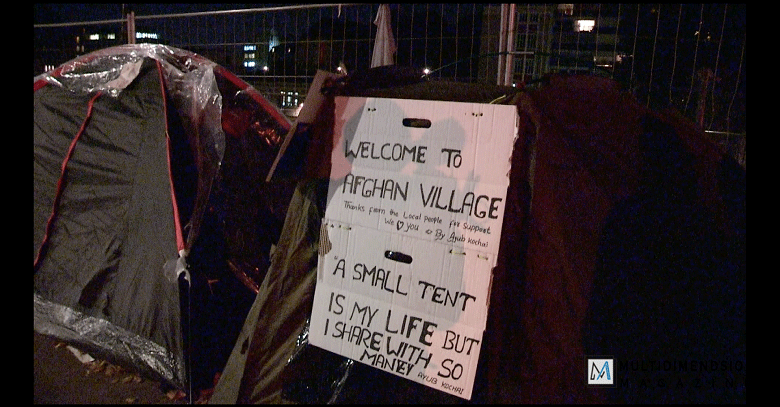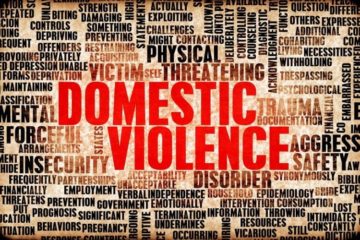Written By: Senex
Paris, France
Photo credit – Jayanta Chakrabarty
On the eve of the 20th century the world was led by the Europeans. They were the only real powers in the world with the exception of the USA and Japan. The rest of the world was either colonized by the Europeans or were too weak to matter; and like the Ottomans, and other remnants of past powers, were dragged into the Wars by one side or the other. Nationalism was the leading political ideology of the day; each country vying with others for power, and in the process becoming rivals and even bitter enemies. Unlike the previous couple of centuries, this meant dragging the entire world into war since the colonies were mere extensions of whichever European power had colonized them. Entire British India, Africa, Australia, and territories under the British were committed to the two World Wars during the first half of the 20th century. These were very destructive wars. The killing technology had been constantly advancing and getting increasingly better and more efficient. As a result the number of dead and the material damage was colossal.
All of this was in the name of the nation states. All of this was to enhance the wealth and power of a handful of people on allsides, and to the general detriment of the population on all sides. The irony of this tale is that these nation States were so-called democratic ones. Yet, those handful of people we call leaders, manipulated the people to fight for them using the carrot or stick (mostly stick), but also fear. Since the beginning, men had grouped together to find strength in numbers to help them survive against both nature and other men. These groups kept growing in size for the same reasons till they became the first city states. The process didn’t stop there but continued to give birth to nation states, which in turn tried to seize other nation states or desirable or strategic parts of their territories. Keeping these growing nation states together became a challenging task.
Finding common elements of identity that bound them together became a primary and essential characteristic of successful groups. As man discovered agriculture (after the last Ice Age) and started settling down after a hitherto nomadic existence, civilization began and we found more and more of these common elements which put together came to represent culture for each collective group. The leaders came to recognize the sheer psychological power of culture to forge bonding within the group, even if they didn’t always benefit the group. They skillfully crafted rituals to do so. They added religion, language, cuisine, social mores and anything else they could to anchor themselves into the psyché of the people. And every time they won a war they would rewrite these elements into the historical narratives, mixing facts with fiction, which in time became mythologies of each group with a common identity. Fake news is not as new as we are made to believe. It has been going on for millenniums.
What for example, do you think in the years leading to WWII, was the difference between the various European nations? Was any one of them morally superior to the others using the criteria we use today? All the hype and the historical “facts” we have been fed by the winners have created false myths that those who won the war were, before the war, morally superior nations to their defeated enemies, whom they defeated because they were on the side of Good and their enemies on the side of Evil. No greater nonsense is possible. Yet, we have come to gradually believe this false narrative because it has been fed into (and by) the dominant culture without pause and the history books fed into the educational system are full of it too.
The truth is that all of these European nations were exactly alike; not only in their greed to augment their national power and wealth but in their racist, colonial and imperial attitude towards the rest of non-European humanity. The British, the Americans, the Germans, the French and the Italians… were all despicably racist, anti-Semitic and colonialist nations without much distinction.*Hitler spent half his life as an avid admirer of Churchill and dreamed of co-reigning over the world with him, his hero.
The problem with us is that we are unable to see history from any other perspective than that of our own place and time. Little do we understand that this perspective is invariably an amalgam of many truths and untruths that have been fused into the complex narrative created by the winning and dominant powers. To transport ourselves to the 1920s and 1930s is beyond our meager intellectual capacities; and our current thinking is merely the result of the Allies winning the War and controlling the world since then. It could have been the other way around; in which case we would have been vilifying the other criminals, like Churchill, the way we do Hitler today. When you remove all the fluff and cultural dressing each group piles upon their historical figures, you realize how thin is the line separating one nation’s heroes from another’s villains. Who can imagine today that the founder of the United States of America, George Washington (and most of the signatories of their prestigious Constitution) were declared terrorists with sizeable prices on their heads by the most powerful nation state and empire of that time, Great Britain. In the same vein, who can say how many of today’s villains will be reinstated as heroes and vice versa in the coming centuries. It’s anyone’s guess.
* It is to be noted that in saying American, British, French, etc. we are not really speaking of the entire nations and all their people, but of the small minority groups that were (and are) their leaders and who have all the power and take decisions over which their people do not have much say. Transition of monarchies to democracies was more in name than in substance, even if they were in the right direction. On the contrary, the people of all these nation states have had a long history of struggling for their own rights and freedoms against their tyrannical leaders – a process which is not yet over.




